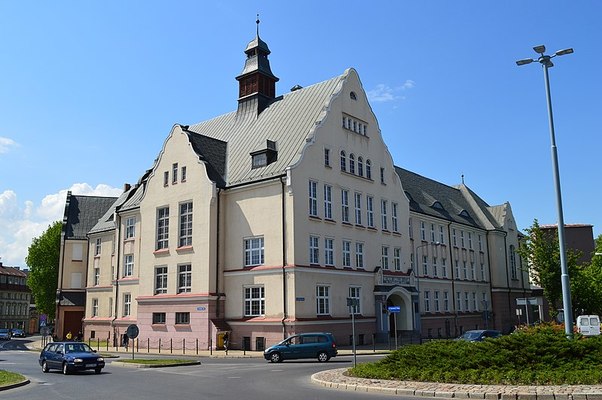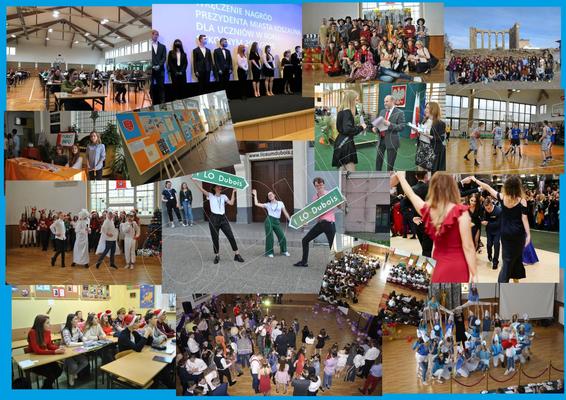
I Liceum Ogólnokształcące im. St. Dubois is a four-year general upper-secondary school, where students can take the maturity examination (Matura) and obtain a maturity certificate required for admission to higher education. On average, 640 students aged 15 – 19 attend Dubois every year. The school employs 55 teachers.
CURRICULUM
The Core Curriculum includes the following subjects to be taught at the basic level: Polish, two modern languages (English, German and French) , mathematics, history, civic education, geography, biology, chemistry, physics, ICT, safety education, PE, introduction to entrepreneurship, education for family life and cultural studies.
Additionally, minimum two and maximum four subjects are taught at the extended level. The school offers the following blocks of extended subjects that students choose when enrolling:
- Mathematics, Physics, IT
- Mathematics, Geography, English
- Mathematics, Physics, English
- Biology, Chemistry
- Polish, History, Civic education
The school year is divided into two semesters. Classes start at 8 a.m. and finish around 2-3 p.m. Each lesson lasts 45 minutes.
EXTRACURRICULAR ACTIVITIES
I Liceum Dubois runs a programme of extracurricular activities, which is designed to complement the mainstream curriculum and which provides opportunities for all students to develop their talents to the full. The extracurricular programme offers more than 20 different activities which are divided into three main groups: Academic (e.g. Polish literature, Mathematics, Astronomy, Biology and Ecology, German DSD II), Sporting (e.g. basketball, volleyball, athletics) and Artistic (film club, photography club, drama club, choir). Some of them are aimed at elementary school students who want to pursue their talents in a friendly, more academic environment.
ASSESSMENT AND GRADING
The performance and progress of students is regularly assessed throughout the school year. Students are assessed separately in each subject. Results of assessment (single grades) are taken into account in the end-of-semester and end-of-year assessment. The following marking scale is used:
- 6 – excellent
- 5 – very good
- 4 – good
- 3 – satisfactory
- 2 – acceptable
- 1 – unsatisfactory (failure)
Students are also given marks for comportment on the following scale: excellent, very good, good, acceptable, unacceptable and inadmissible.
EXTERNAL ASSESSMENT
At the end of upper-secondary education students sit a matriculation exam (Matura), a national external examination, which allows access to higher education. To pass the Matura, it is necessary to score at least 30% of the points in each compulsory subject and to take at least one additional subject at the extended level.

